
POSTE RESTANTE BY CHRISTER STRÖMHOLM
There’s a very helpful quote on the back of the reissue (finally!) of Christer Strömholm’s 1967 masterpiece, Poste Restante, from a contemporary review in the Swedish evening tabloid Expressen. “As far as I know,” the review goes, “this is the first time a book publisher (Norstedts) has dropped all demands that a photobook must have a subject in the ordinary sense—or at least that it must work on a social, documentary, or generally decorative level…

WHITE NIGHT BY FENG LI
In my fiction writing class, after a piece has been read out loud, the first question we ask is: What’s the story? I like to have the students kick around what they think the story they’ve just heard is, how it sets out, where it takes us, how it turns, twists, resolves. That question gets to the center of the writing, and from that the rest of the piece opens up…

DAIDO MORIYAMA’S NEVER-ENDING TOUR
The first time I met Daido Moriyama, I told him I thought of him as the Bob Dylan of photography. A small smile, an undisclosing nod. I can’t say how he felt about my comment…

PEOPLE IN CARS BY MIKE MANDEL AND PICTURES FROM HOME BY LARRY SULTAN
Fun times! In this review, I’m looking at books from my own growing-up world, the celebrated/ridiculed San Fernando Valley suburbs north of Los Angeles/Beverly Hills proper. Turns out Mike Mandel, author of the recent People in Cars, was in my high school class! How do I know?…

RAVENS BY MASAHISA FUKASE, REVIEW PART II
True story: I was twenty, on a beach in San Diego, California, reading Moby-Dick, Herman Melville’s sprawling God/devil-bedizened tale of Ahab’s obsession with his white whale, when I read a sentence so beautiful and powerful I pulled my gaze away from the page, lifted back my head, and a shaft of light beamed from the sky straight at me…
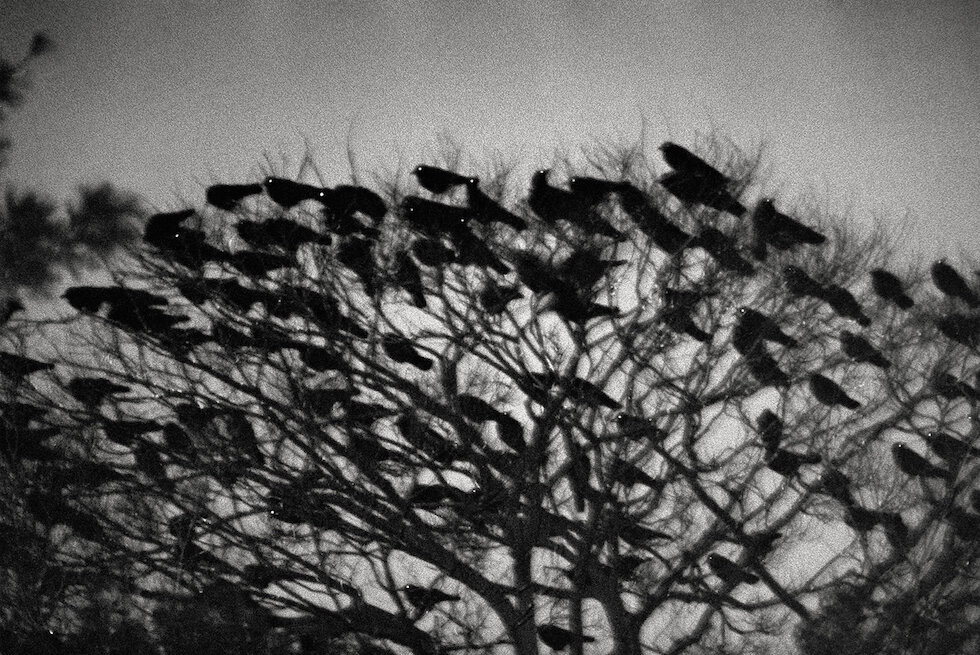
RAVENS BY MASAHISA FUKASE, REVIEW PART I
Imagine: There’s a novel that towers over all of 19th-century American literature, there’s a group of French poems that takes you where no other poetry book does, there’s an album of dark tunes by Britain’s (the world’s?) second-greatest rock band at the height of their powers … and you can’t read or listen to any of it…

PAST PERFECT CONTINUOUS BY IGOR POSNER
Perhaps it’s because I’m a novelist, because I studied lit in college, but what moves me most in a potentially great photobook is what moves me with a great novel or poetry collection (or even record album): shape, depth, coherence, narrative, flow … simply a reason for all the shots to be there other than that of a catalogue or some artist’s current work gathered up. But of course more than that, too: vision, enlightenment, and emotions larger than we ourselves can imagine.
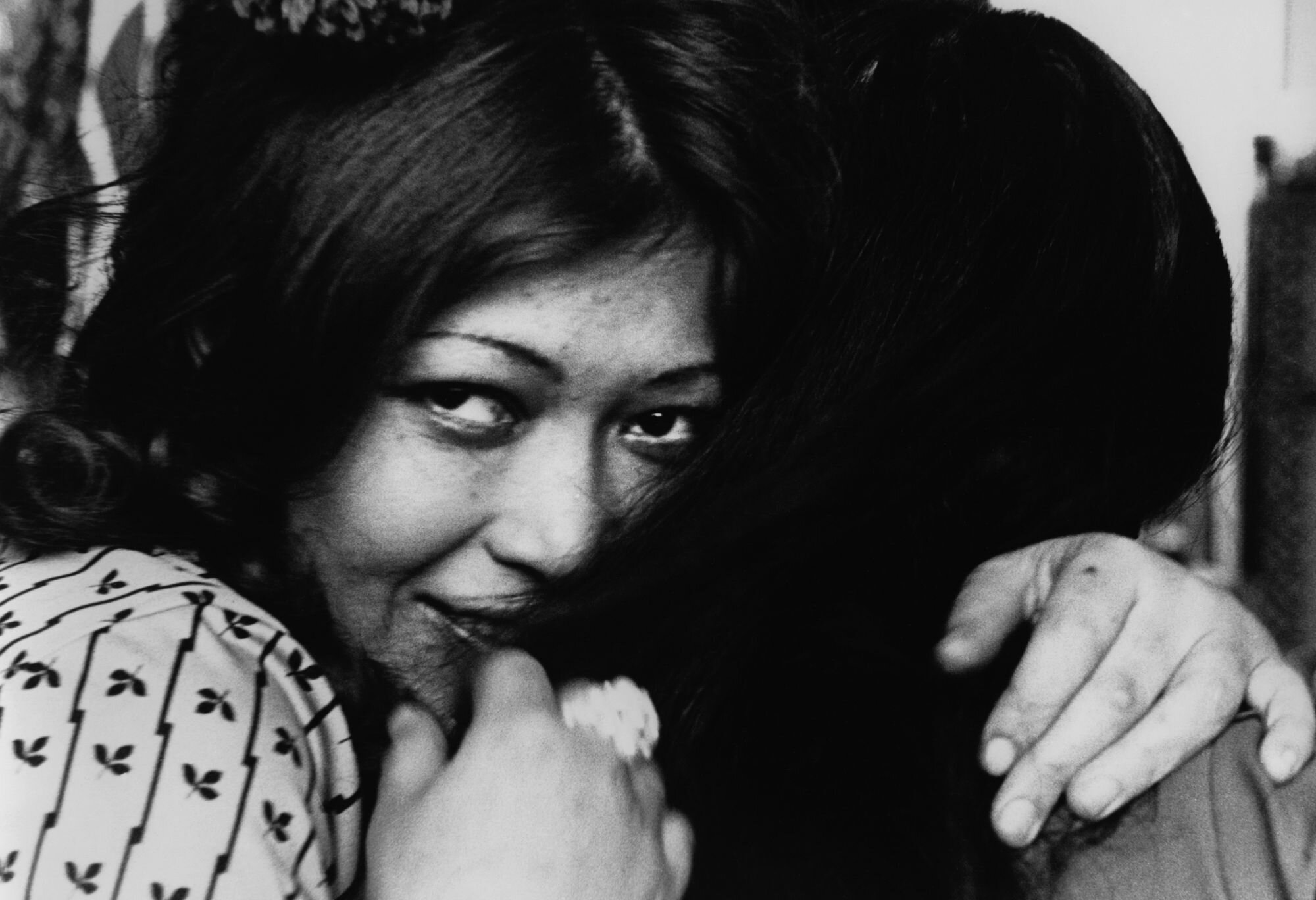
RED FLOWER: THE WOMEN OF OKINAWA BY MAO ISHIKAWA
One of the rarest, most interesting of photobook genres: I’m a talented young photographer, I’m doing wild, socially deviant stuff, throwing myself all the way into a crazy scene, and I’m taking my camera along.
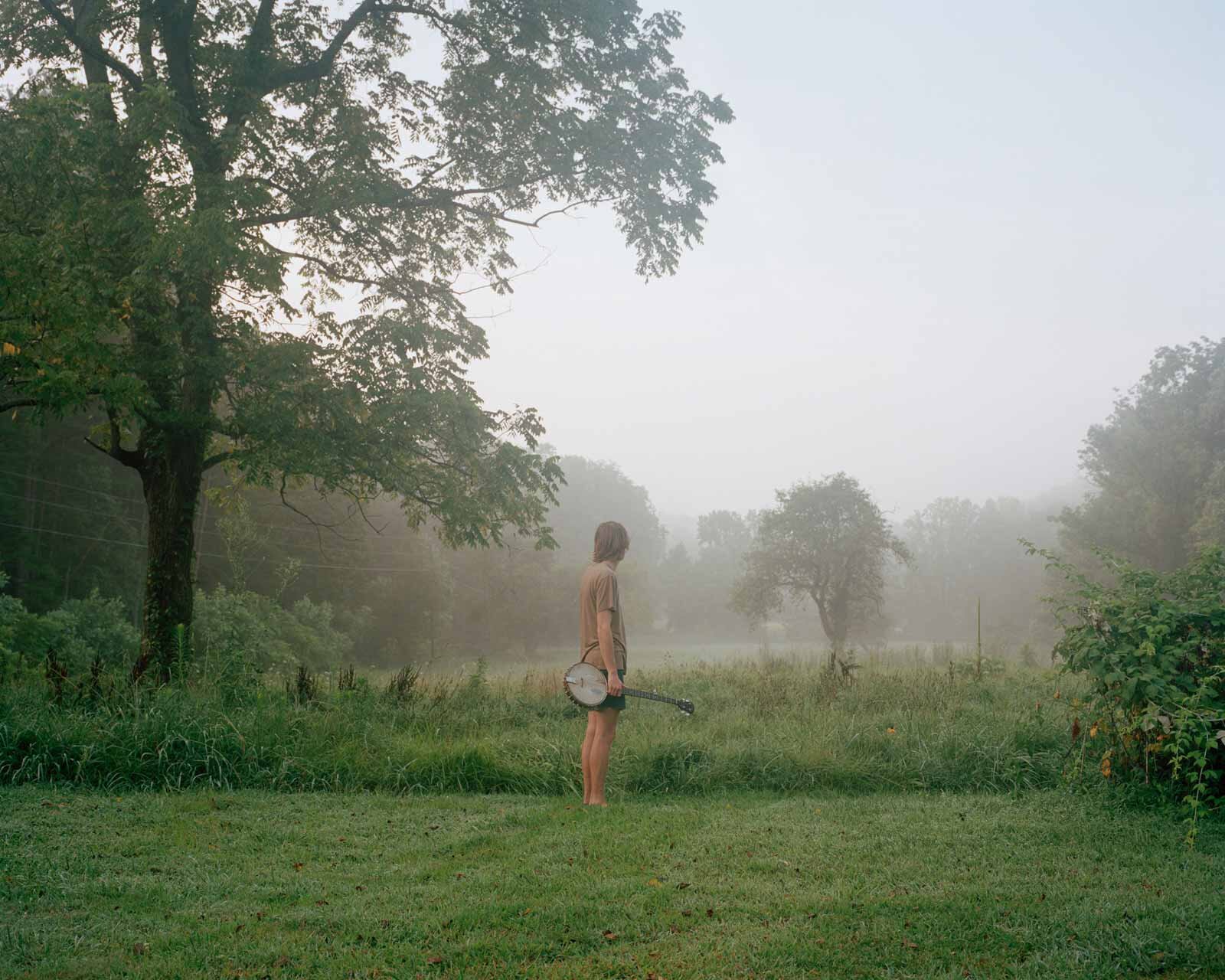
ONE SUN, ONE SHADOW BY SHANE LAVALETTE
Photographer Shane Lavalette had the good fortune (and as we’ll see, the tough climb) to be commissioned by the High Museum of Art in Atlanta do a study of America’s South. (He’s from upstate New York.) The book that resulted is One Sun, One Shadow, published by Lavalette’s own publishing house…
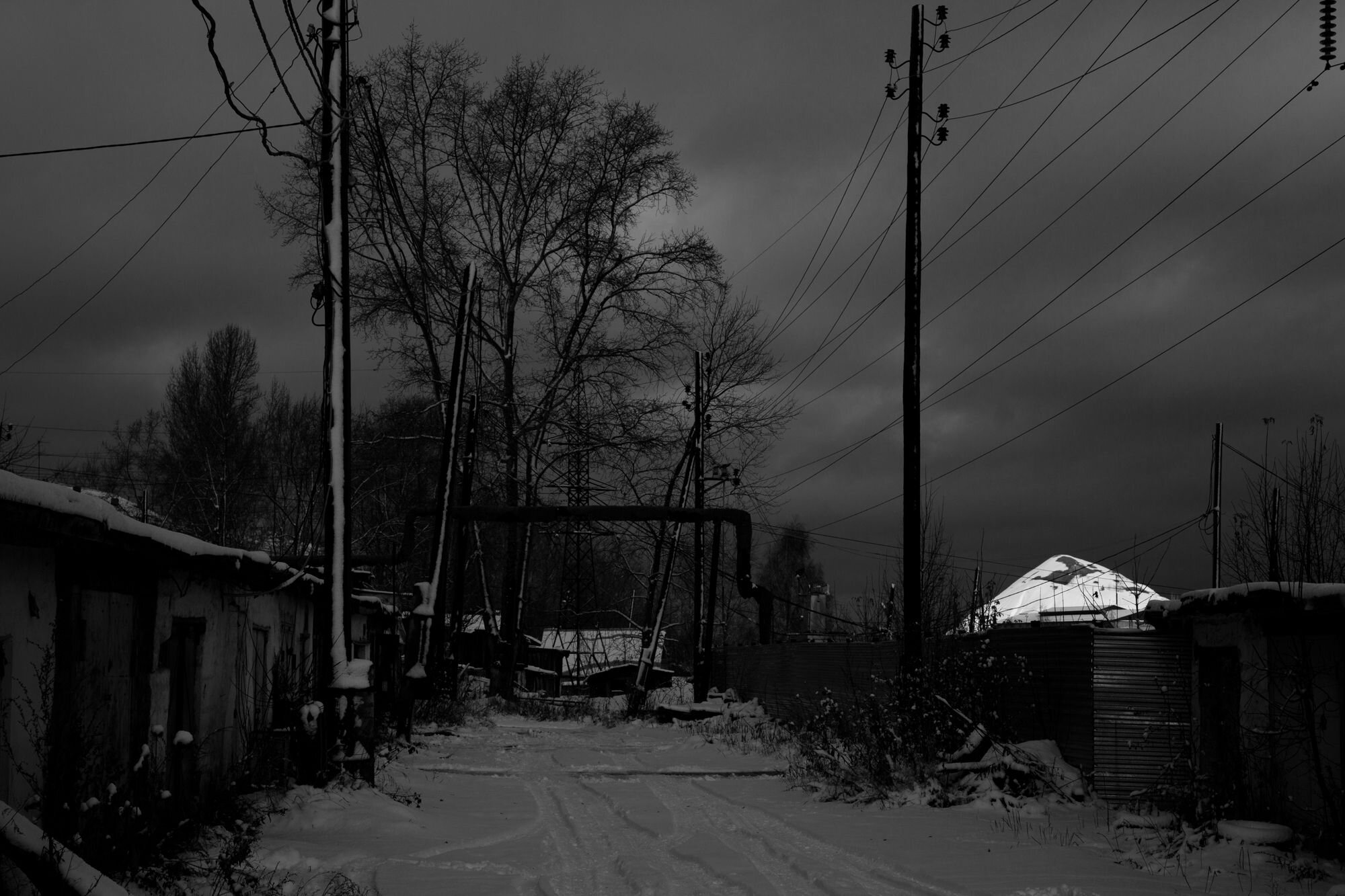
36 VIEWS BY FYODOR TELKOV
We open the new book 36 Views, by Russian photographer Fyodor Telkov and published by Ediciones Anómalas, to find a shot of a Soviet Realist painting depicting heroic miners deep underground, followed by a historical photo of the pride of Soviet young womanhood parading with flags through the small mining town of Degtyarsk, no doubt celebrating those heroic miners…
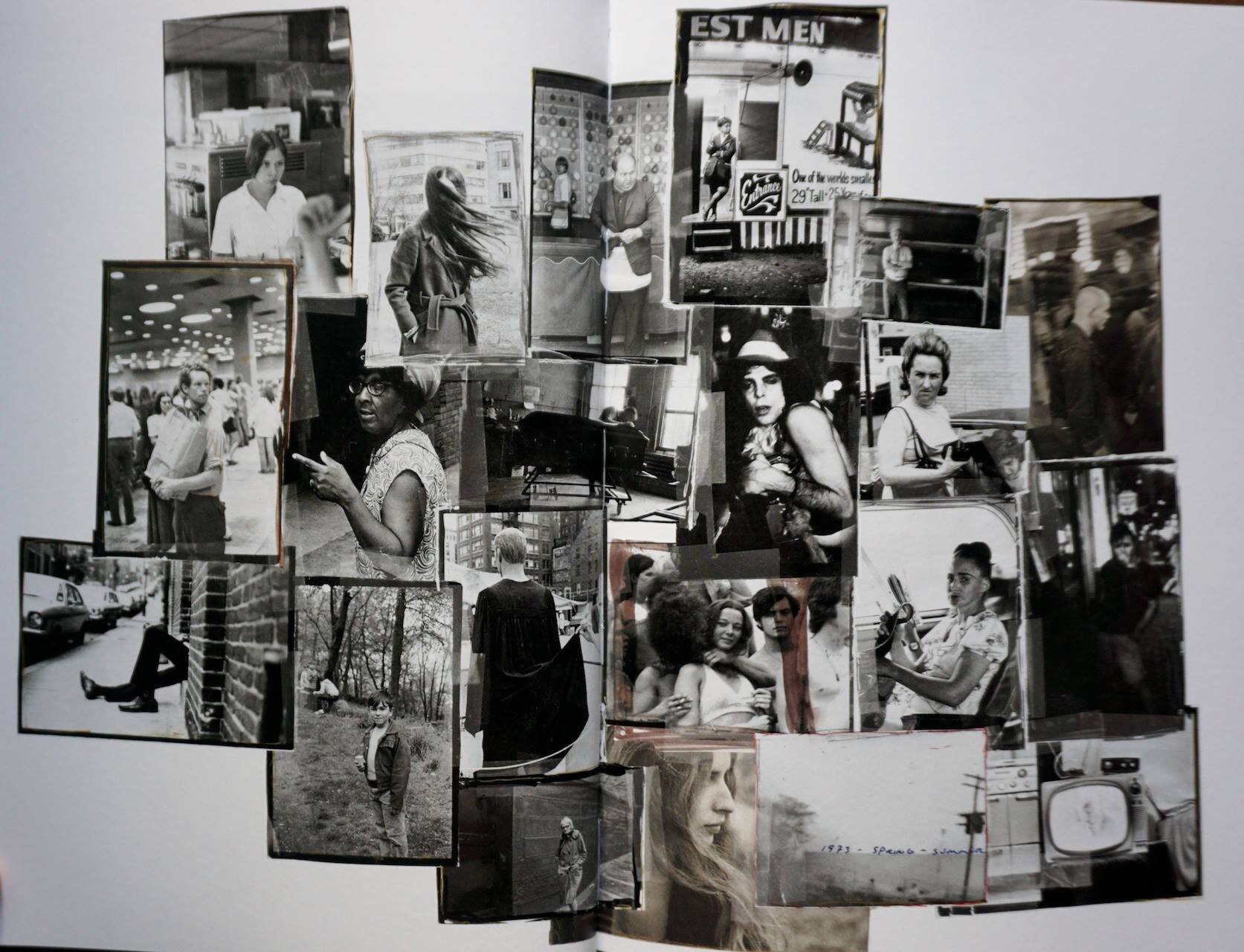
THE LAST SON BY JIM GOLDBERG
In my last review for Photobookstore Magazine, I talked about autobiography in photobooks, how all photobooks in a way chart a photographer’s life, since he or she physically takes the pictures, but how an actual autobiographical photobook is rare, because it demands an intention to deeply examine one’s own life, then to tell that story, and well…

WHILE LEAVES ARE FALLING BY TAKAHIRO KANEYAMA
What is autobiography in a photobook? On one level all photobooks are autobiographical, since a photographer has to be there to take a shot, thus has to have lived it in some way. But most photobooks tell us how a photographer sees, how they understand their art and pursue it. A true autobiography—a work set out to capture actual events in a photographer’s life—is much rarer than you might think…

MIKIKO HARA’S AND STEPHEN DIXON’S CHANGE
The first question with Mikiko Hara’s and Stephen Dixon’s Change is how to read it. The photobook, the first published by the Gould Collection, interleaves Hara’s photographs with a short fiction by the novelist Stephen Dixon. The photos are printed on a fine white semi-gloss paper; the pages of the story are on a blue rag paper and an inch shorter on the far side than the rest of the book. The two papers keep words and pictures nicely distinct.

SHADOWS OF WORMWOOD BY ARTHUR BONDAR
In my last review for PhotoBookstore Magazine, I looked at Renato D’Agostin’s Archaeologies: Los Angeles, and took it to task for the limitations of its intentionality: How it set out on purpose to capture the city of Los Angeles in photographs and ended up with a book notable for its lack of surprise and abundance of shots of typical L.A. totems: palm trees, freeways, Watts towers, etc.

RENATO D’AGOSTIN’S LOS ANGELES
I wanted to write about Renato D’Agostin’s new book Archaeologies: Los Angeles because I was born and raised in L.A., and on trips back to the city I’m always trying to find the best way to shoot it. My own photo work is mostly based on my perambulations around my longtime home of New York City (see my latest book, New York Street), where I have a tight city to shoot, with an abundance of unexpected subject matter…

ASTRES NOIRS BY KATRIN KOENNING AND SARKER PROTICK
What do we do with black and white these days? Photographers can of course still shoot film, process it, print it; they can chase masters such as Garry Winogrand and Bruce Davidson as if it’s still forty, fifty years ago. But if a photographer wants to bring black and white into the current century—modernize it, exploit all the current possibilities—then what to do?

CHRIS KILLIP – IN FLAGRANTE TWO
It’s one thing simply to reissue a classic photobook, as Steidl did recently—and exemplarily—with Cartier-Bresson’s Decisive Moment, but it’s a bit more to put out a great book in a new, amended edition, as the same publisher did this year with Chris Killip’s In Flagrante Two.

A “STORYTELLING” OF RAVENS – AN APPRECIATION OF MASAHISA FUKASE’S MASTERPIECE
The afterlife of Masahisa Fukase continues apace. In the last year I’ve picked up Slaughter (staged shots of his first wife, Yoko, posing in a slaughterhouse in 1962) and Wonderful Days (cat photos), and now from Mack comes a new book, Hibi…

PROVOKE: BETWEEN PROTEST AND PERFORMANCE
If you love Japanese photography, as I do, the new book Provoke: Between Protest and Performance is essential—and a godsend…

SOMBRAS SECAS BY MARCELO GRECO
Marcelo Greco’s Sombras Secas (Dry Shadows, in Portuguese) is a black-and-white Provoke-era-style photobook comprised of 35 recent shots from Greco’s home city of São Paulo, Brazil. The Provoke influence intrigues…
